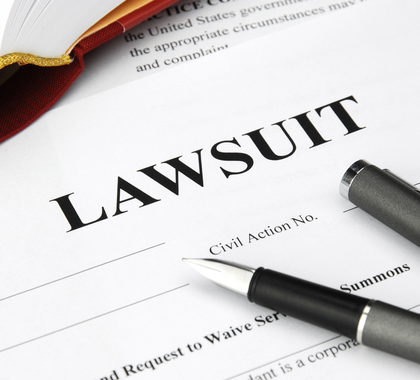Business groups have long campaigned against frivolous lawsuits. And yet the problem resembles government’s challenge in planning an economy. Consequently the nature of knowledge makes eliminating frivolous lawsuits unexpectedly challenging.
Demands for reform persist in part because so many lawsuits appear, well, frivolous. Like the New Jersey woman claiming “severe and permanent orthopedic, neurological, and neuropsychiatric injuries” from a mouse jumping on her at Home Depot.
Lawsuits are costly, so we should be concerned about those which do not contribute to justice. Lawyers are smart, and their talent could be used more productively in the economy. Litigation can distract entrepreneurs, bankers, and others who contribute to prosperity. Fear of litigation can affect business decisions.
News reporting on lawsuit abuse, though, is often misleading. Huge jury awards often get reduced or overturned. For instance, recent $70 million and $400 million jury awards against Johnson and Johnson in cases linking Baby Powder to ovarian cancer were overturned on appeal.
And cases sometimes appear less frivolous upon closer examination. Consider 1992’s McDonald’s “Hot Coffee” case. Stella Liebeck received $2.9 million after spilling drive thru coffee, which sounds ridiculous. Yet McDonald’s served coffee 30 to 40 degrees hotter than other restaurants. Ms. Liebeck, who spent eight days in a hospital and needed skin grafts for her burns, initially sought only $20,000 and settled for an undisclosed amount to avoid lengthy appeals.
Two sorts of cases often strike us as ridiculous. Sometimes the ability to collect damages in a case offends us, like the Indiana burglar who sued the homeowners he tried to rob. Other times the evidence seems weak and unconvincing. I do not see how a case where the plaintiff has a valid claim is frivolous. Rather, such verdicts reflect bad laws that may need changing. And our courts already have ways to deal with weak cases, like summary judgment at the start of a case and the judge setting aside an award which the evidence cannot as a matter of law justify.
We must know the truth to declare a case frivolous. And this gets into knowledge issues similar to economics. The relevant facts in a case are typically dispersed, which is why many witnesses get called. The facts must be assembled to evaluate a case’s merits.
Economist Friedrich Hayek observed that economic facts are also dispersed and difficult to assemble. Dispersed knowledge renders government direction of the economy impractical. Presuming that we can identify frivolous lawsuits arguably commits the central planning fallacy.
Furthermore, Professor Hayek argued that markets must function to learn what we “know” about the economy. We did not know all the uses for steam power or computers until they were available on the market. A lawsuit initiates a fact-finding process, extending to facts a defendant might be hiding.
Specific reforms also seem dubious. Many states, including Alabama, limit noneconomic or “pain and suffering” damages in medical malpractice cases. Any limit harms individuals experiencing losses exceeding the threshold; Florida’s limit was declared unconstitutional for this reason. A cap on damages at best seems like a patch for some other problem.
We will get farther, I think, asking why people file cases with no chance of winning. Contingency fees, or the plaintiff’s lawyer accepting a share of the recovery in lieu of a fee, often receive blame. But a weak case incapable of producing a settlement will earn a lawyer no fees. Plaintiff’s lawyers should not take weak cases, even on contingency.
This is not to say that our judicial process is perfect. Jurors will sometimes stretch the law to assist suffering plaintiffs at the expense of rich corporations or insurance companies. And legal fees consume a distressingly large share of jury awards. This does not mean that fees are excessive, only that the cost (including delays) of litigation makes it difficult to do justice.
Odds are that you will soon read about another seemingly frivolous lawsuit. Unfortunately, we cannot simply make the frivolous suits disappear. And remember that lawsuits that initially appear ridiculous can still have substantial merit.





